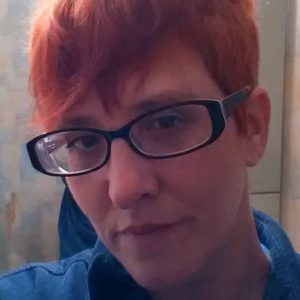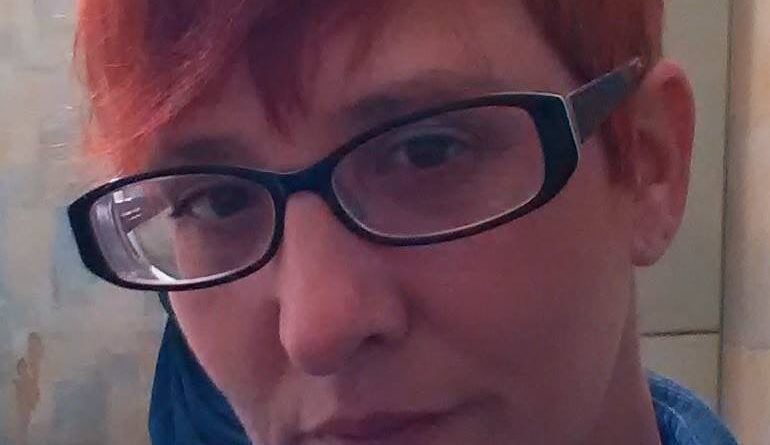Nonviolence after Charlottesville by Beth Foster
 It’s been a month, a month and a few hours, since and I and three elders from Mercy Junction Justice and Peace Center stood with other faith leaders in the face of white supremacy in Charlottesville. I, who am never at a loss for words, have stared at this screen for more than an hour and tried to think about what I have to say about “Peace Communities after Charlottesville.” After a month, my thoughts, in many ways, seem more muddled than they did on the long drive back home to Tennessee on Aug. 13.
It’s been a month, a month and a few hours, since and I and three elders from Mercy Junction Justice and Peace Center stood with other faith leaders in the face of white supremacy in Charlottesville. I, who am never at a loss for words, have stared at this screen for more than an hour and tried to think about what I have to say about “Peace Communities after Charlottesville.” After a month, my thoughts, in many ways, seem more muddled than they did on the long drive back home to Tennessee on Aug. 13.
I’d be dishonest if I didn’t admit that I am grappling with what a commitment to nonviolence means in the hours, days, and now a month, since Charlottesville. Mercy Junction is one of the peace communities supported by the Presbyterian Peace Fellowship. Our five core commitments are to social justice, equality, hospitality, interfaith work and peacemaking. At the root of all our work, down to our veganism, is a commitment to nonviolence.
However, I know — I absolutely know — that those of us who engaged in nonviolent action on Aug. 12 would have been seriously injured or killed if not for comrades who confronted the violent white supremacists with force. And, the truth is, in that moment — in that moment when dozens of large, armed men were running toward us with sticks raised — I was glad to see antifa. The truth is, I didn’t want to be killed or seriously injured.
The truth is that among antifa activists that day were people who I love and respect. There were people who I call my friends, and who I consider to be part of Mercy Junction, and who have a calling to social justice work at least as deep as my own. Their way of confronting evil systems is different than the one I follow; but, when I was asked about local antifa activists who were arrested in Charlottesville, I claimed them as my friends and friends of Mercy Junction.
While Aug. 12 was intense, the intensity of that day didn’t end immediately upon our return home. There was a spate of attacks about our association with antifa activists, and creepy emails, phone calls and social media messages — vaguely threatening. Our elders talked about security. Security had never been more than locking the door at the end of the day — and half the time it would be propped open after hours. Our commitment to nonviolence extended to a prohibition against weapons on the church property, and this included asking law enforcement officers not to come onto the property armed or in uniform.
But, in the days after Charlottesville, we talked about whether we were in a time and circumstances when our stance was no longer possible. There were even a few mentions of armed security.
I struggled.
I struggled with my heart that believed in nonviolence, but had also felt relief that antifa got to them before they got to us. I sought the wisdom of two people from Presbyterian Peace Fellowship — Joe Paparone and the Rev. Amy Cantrell. Both gave generously of their time and their hearts as I worked through the struggle.
Amy said what she’d said to me before when I asked for guidance on issues at Mercy Junction, “Jesus was messy.”
She reminded me of those who embraced violence within Jesus’ own inner circle. She reminded me that throughout the history of resistance there has been tension between self-defense and nonviolence. She reminded me that it is never our place to judge how the oppressed respond to their oppressors.
Mercy Junction made the decision not to change.
We are still committed to nonviolence. We still do not allow weapons on church property. We still throw open our doors to give food, clothing, love and community to anyone who seeks our hospitality. We embrace our antifa sisters and brothers and know that in the end, we’re all trying to arrive at the same place, some of us are just going there in different ways. And, we will still confront white supremacy in the streets and in our institutions with nonviolent direct action.
So, “Peace Communities After Charlottesville” … it’s still messy, but we’re learning how to live with that.
Beth Foster is director of the Mercy Junction Justice & Peace Center in Chattanooga, Tenn. Mercy Junction was founded by the Presbytery of East Tennessee and is now an interfaith congregation committed to social justice, equality, hospitality and peacemaking. It operates the Justice & Peace Center at St. Andrews, which houses a community of artists, activists and people of faith.

